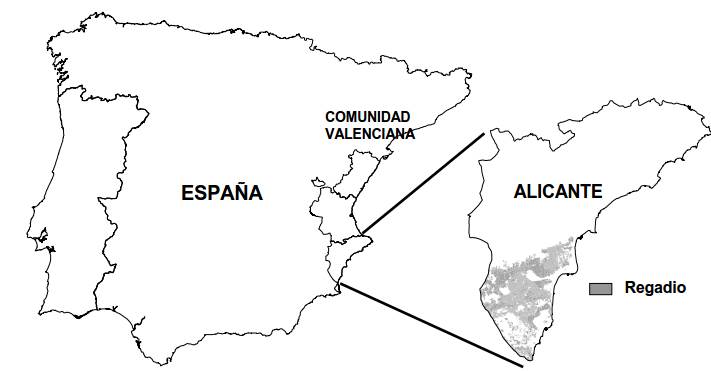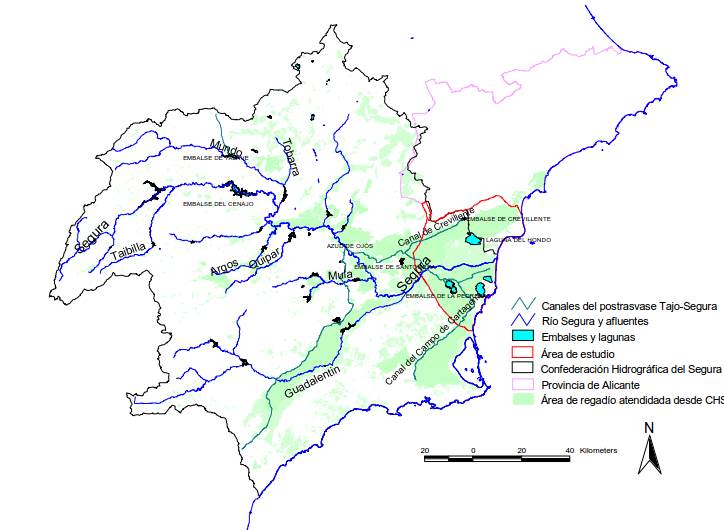This project identified opportunities for innovative solutions that decrease local fresh water shortages in economic vulnerable regions under increasing water stress (droughts, salinization). The project demonstrated the business potential of fresh water solutions for a case study area with intensive agriculture within the Valencia region, Spain. FutureWater’s role in this project was to develop an integrated land and water resource management (ILWRM) model for scenario development of which the results were used as input for a business model.
This project identifies opportunities for innovative solutions that decrease local fresh water shortages in economic vulnerable regions under increasing water stress (droughts, salinization). Solutions like climate adaptive drainage, aquifer storage and recovery and levee bank infiltration are considered innovations that strengthen regional agricultural economy and reduce water stress due to climate change. The project has three components:
- Analysis of a drought and salinization prone region: what water shortages now and under climate change will occur in the region; what agricultural production is economically most vital to the region; how can geographical/climatological and soil characteristics support different adaptation measures.
- Making maps for the region that define the potential success rate of various kinds of fresh water solutions.
- Building business cases for the use of fresh water solutions, on a local scale, with and for farmers, private companies that manufacture and install technical infrastructure and regional governments (water management agency; agricultural agency).

This project builds upon more than 4 years of research and pilots within the Knowledge for Climate program in the Netherlands in which various measures to increase local fresh water availability were extensively investigated, tested in the field with several agricultural entrepreneurs and companies providing the technical infrastructure. In this project a number of successful (in terms of effectiveness and economic feasibility) pilots have been carried out with local technologies and much practical knowledge has been gained on the costs and benefits of these innovations. For up scaling purposes this knowledge has been incorporated in a toolbox called the Fresh Water Options Optimizer (FWOO). The FWOO explores the potential for solutions that deal with water shortage, either caused by drought or limitations in fresh water supply. These solutions are primarily adaptive, but can also be used to create conditions for farming higher grade, more profitable crops. The project covers both a supply side and a demand side need. It is stimulating a portfolio of innovative technologies that improves freshwater.
The basis for the FWOO consists of a method to produce maps that pinpoint where conditions are less or more suitable for local fresh water solutions that secure the water supply of farmers and decrease their vulnerability to periods of drought or stalling water supply. Moreover, the FWOO hands a method to asses other physical factors that determine the success and quantitative potential of local solutions, like interference between solutions, the interaction with surface water quality, the current or future water management strategy and seasonal aspects.

The project will demonstrate the business potential of fresh water solutions for a case study area with intensive agriculture within the Valencia region, Spain. Also, within the project knowledge and experiences are shared with stakeholders from Italy’s Emilia Romagna region, where similar challenges are present and potential for local fresh water solutions exist. In this way this region is offered the occasion to prepare also for innovation pilots in a follow up stage.
Related publications
2015 - Deltares Report
Application of the FWOO method in the Vega Baja Segura catchment
Delsman, J., J.M. de Paz, M. de Klerk, L. Stuyt, P. de Louw, F. Visconti, M. del Longo, S. Pecora
2015 - FutureWater Report 139
Water Allocation Planning for Vega Baja del Segura Spain
De Klerk, M., P. Droogers


